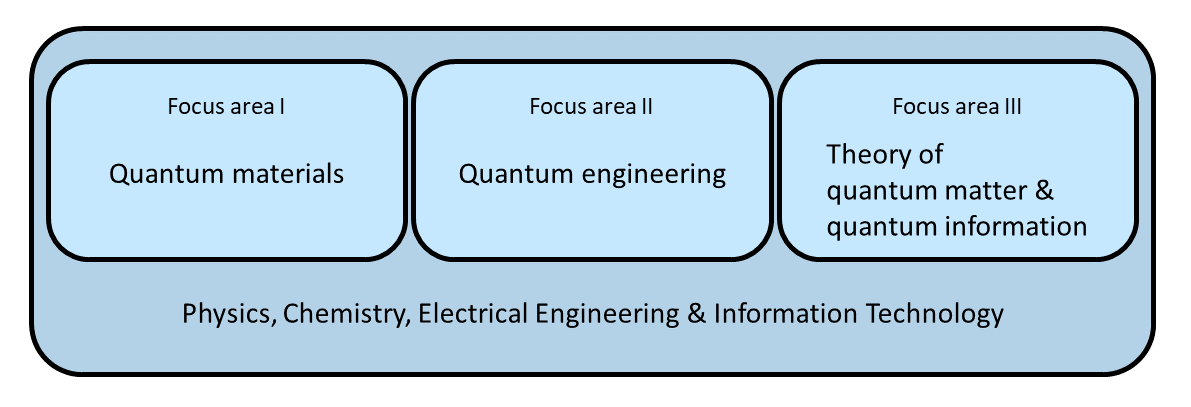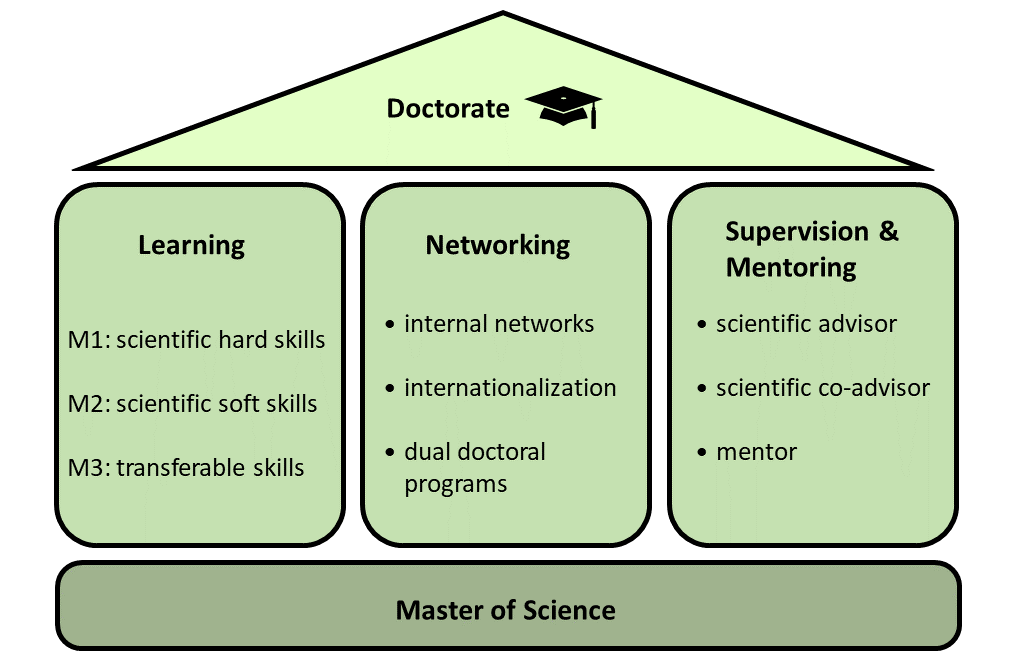KSQM - KIT Graduate School of Quantum Matter
Scientific profile of KSQM
KSQM provides a multidisciplinary environment for first-class education to foster research and innovation for quantum technologies. It promotes the excellence of its doctoral researchers who receive tailored training for the associated scientific and technological challenges in both academia and industry. Scientifically, the School focuses on three areas: (I) Quantum materials, (II) Quantum engineering and (III) Theory of quantum matter and quantum information reflecting the necessity to discover, design and understand quantum matter for the development of suitable hard- and software.The Graduate School offers on the one hand tailored further education for doctoral researchers within the three focus areas and, on the other hand, establishes stronger relations between existing and new research and teaching efforts bridging the activities between different areas and disciplines.

Objectives and qualification concept
The qualification concept builds on three pillars: (I) Learning, (II) Networking and (III) Supervision & Mentoring. The educational concept is designed to qualify graduates in science as well as in softskills for making a successful careers at world-leading academic institutions and in high-technology industries.The doctoral researchers benefit from all three pillars of the Graduate School as it will offer tailored courses, retreat meetings, and summer schools, encourage the participation in workshop and conferences, it will partially finance international exchanges, and it develops further the existing mentoring and supervision system.

Organization and quality management
The steering committee is in charge of the financial resources of the Graduate School, the academic program, and the implementation of the qualification concept. Its constitution will be adapted each year and the number of its members will depend on the number of anticipated applications. The coordinator not only serves as a contact person but co-organizes the scientific and social events. Each year a Council of doctoral researchers with four members will be elected by all doctoral researchers. This council co-organizes the retreat meeting, meet-the-speaker events and other social activities, and is available to give advice and suggestions, and closely interacts with the coordinator.
